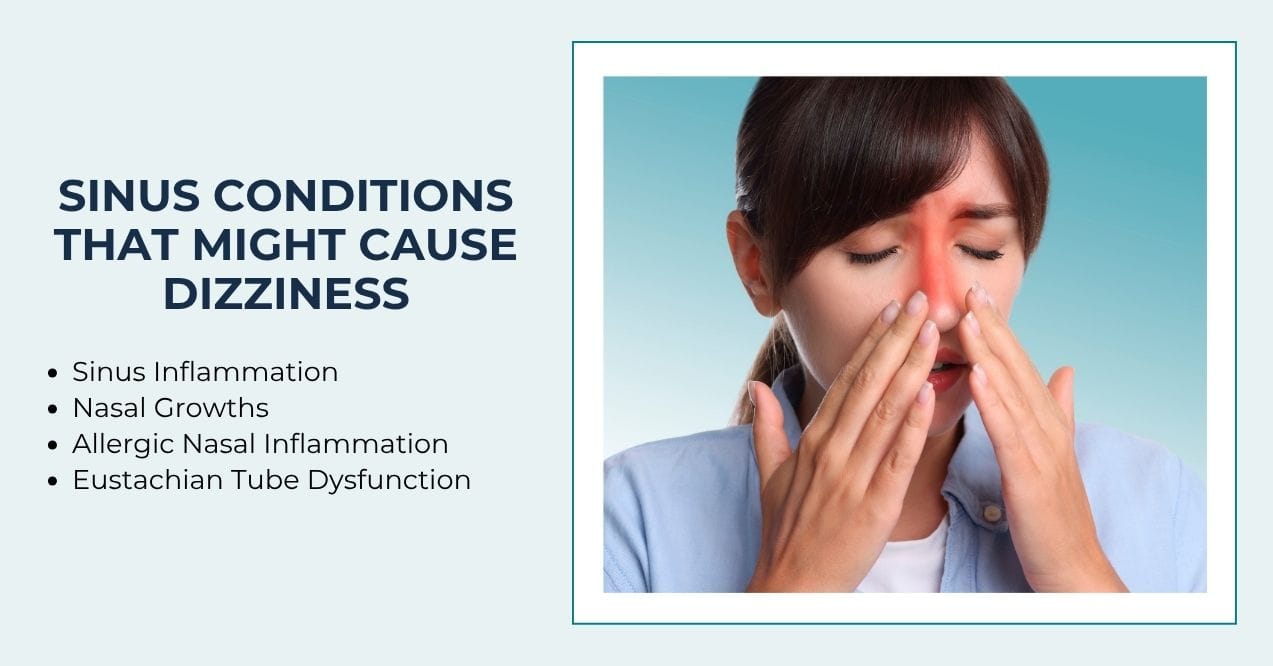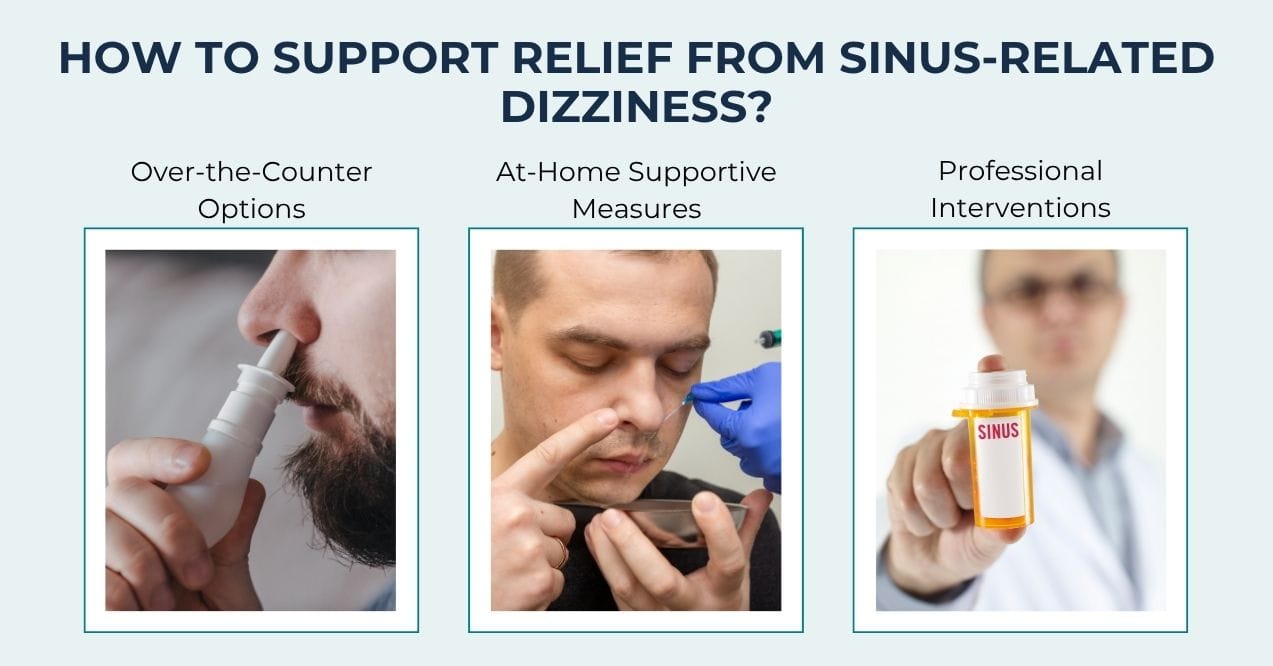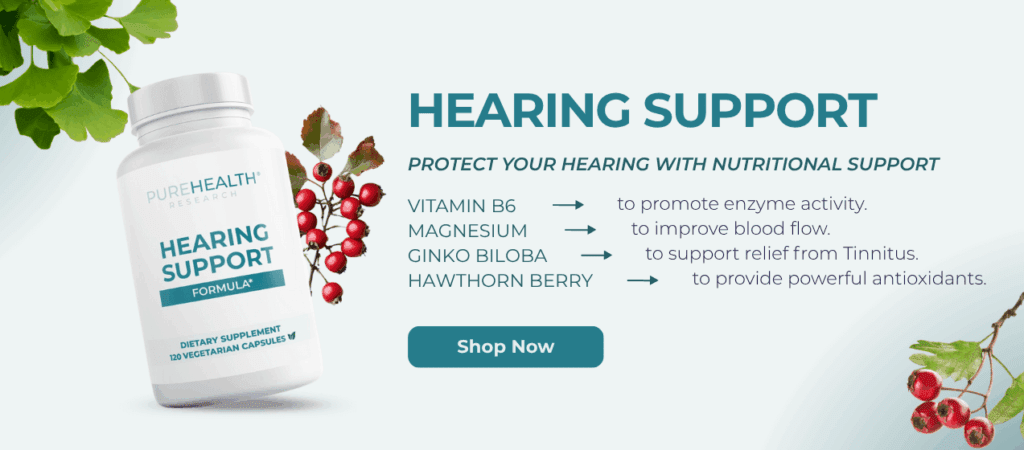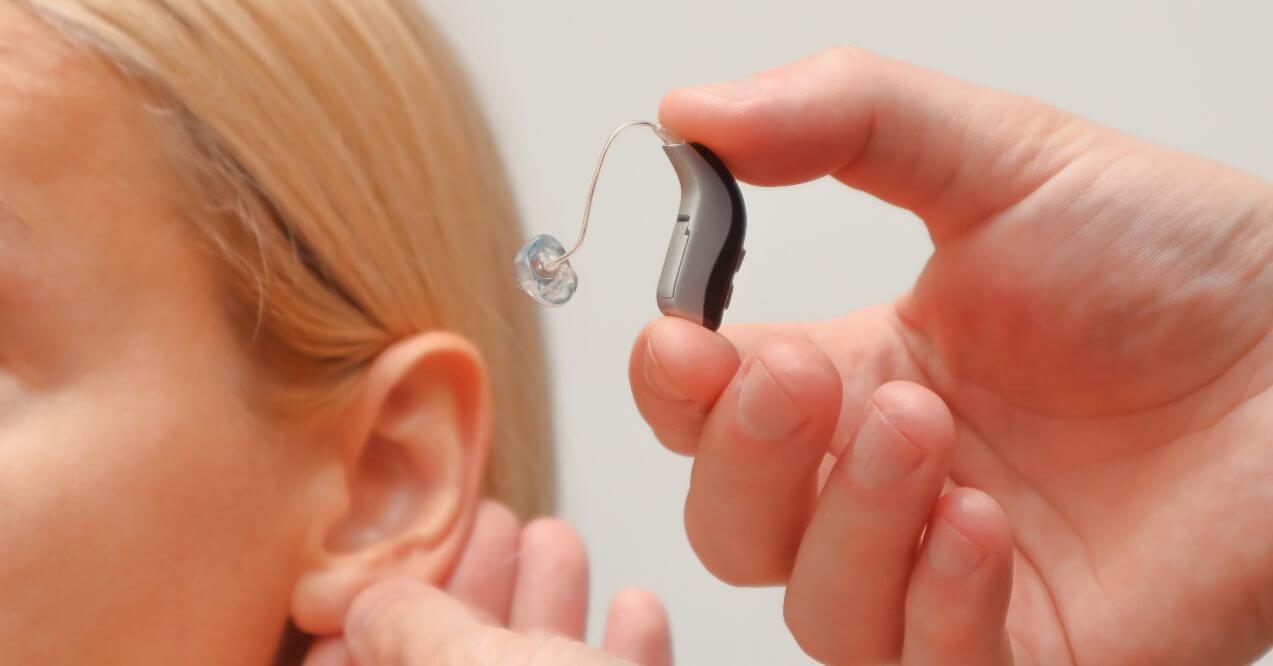Can Sinus Cause Dizziness? Symptoms & Solutions
Can sinus cause dizziness? Explore how congestion disrupts inner ear function and find supportive solutions for better balance.


Many people are familiar with the throbbing pain and stuffiness that comes with sinus congestion, but they’re often caught off guard when these issues start affecting their balance. The connection between your sinuses and dizziness might seem surprising, yet it’s more common than you’d think. Can sinus cause dizziness? The answer is yes – your sinus passages and inner ear work closely together, and when one system becomes disrupted, it can impact the other.
This guide will explore how sinus congestion can influence your sense of equilibrium, what symptoms to watch for, and practical approaches that may help support your comfort and stability.
How Sinus Problems Can Affect Your Balance?
Your sinuses and inner ear share a surprisingly close relationship that directly impacts your sense of balance. The inner ear contains delicate structures responsible for maintaining equilibrium, while your sinuses are air-filled cavities located throughout your skull. When sinus inflammation occurs, it can create a cascade of effects that disrupt your body’s natural balance system.
The key connection lies in the Eustachian tubes, which link your middle ear to the back of your throat. These tubes help regulate air pressure in your ears and allow fluid to drain properly. When your sinuses become swollen or filled with fluid, they can put pressure on these crucial tubes, preventing them from functioning normally.
This disruption can lead to unequal pressure between your ears and the outside environment. Your brain relies on consistent signals from both ears to maintain balance, so when one ear experiences different pressure levels, it can result in feelings of lightheadedness or unsteadiness.
Additionally, sinus congestion can affect the small bones and fluid-filled chambers in your inner ear that detect head movements and spatial orientation. When these structures don’t receive clear signals due to pressure changes, your brain may struggle to process your position in space, contributing to that off-balance sensation many people experience during sinus flare-ups.
Sinus Conditions That Might Cause Dizziness

Several sinus-related conditions can disrupt your balance and contribute to feelings of dizziness. Understanding these different causes can help you identify what might be affecting your equilibrium.
Sinus Inflammation (Inflammatory Sinus Condition) – When your sinus cavities become inflamed and swollen, they can create significant pressure buildup that interferes with your ear’s balance mechanisms. This swelling often blocks normal drainage pathways, causing fluid to accumulate and put additional pressure on surrounding structures. The resulting congestion can make you feel unsteady or lightheaded, especially when changing positions quickly.
Nasal Growths (Polyps) – These soft, non-cancerous tissue growths can develop in your nasal passages and sinuses, obstructing normal airflow patterns. When polyps block your sinus openings, they prevent proper air circulation and drainage, which can alter the pressure dynamics in your inner ear. This disruption to normal pressure balance may contribute to dizziness and spatial disorientation.
Allergic Nasal Inflammation – Environmental allergens can trigger widespread nasal and sinus congestion that extends to your middle ear area. This allergic response creates swelling and increased mucus production, which can impact the delicate pressure balance your ears need to function properly. The resulting congestion may affect your sense of stability.
Eustachian Tube Dysfunction – When these important drainage tubes become blocked or don’t open properly, fluid and pressure can build up in your middle ear. This impaired drainage system disrupts the normal pressure equalization process, leading to that “plugged” feeling and potential dizziness. Exploring natural remedies for sinus infection could support overall comfort and balance.
Common Symptoms to Watch For
Sinus-related dizziness rarely occurs in isolation – it typically appears alongside other telltale signs that can help you identify the connection. Recognizing these patterns can provide valuable insight into what’s affecting your balance and comfort.
- Feeling unsteady or off-balance
- Spinning sensations
- Lightheadedness
- A sensation of floating
- Pressure or fullness in one or both ears
- Muffled hearing or temporary hearing changes
- Headaches that worsen with movement
- Pain or tenderness around your forehead, cheeks, or behind your eyes
- Thick post-nasal drip
- Nasal congestion that makes breathing difficult
- Mental cloudiness
- Fatigue
When Should You See a Healthcare Professional?

While mild sinus-related dizziness often improves with time and supportive care, certain symptoms warrant prompt medical evaluation. Recognizing these warning signs can help you determine when professional assessment becomes necessary.
Seek immediate medical attention if you experience:
- Severe dizziness that prevents normal daily activities
- Sudden hearing loss or significant hearing changes
- Vision problems, including double vision or blurred sight
- High fever accompanied by facial pain and dizziness
- Persistent symptoms lasting more than two weeks without improvement
Schedule a consultation for:
- Recurring episodes of dizziness that interfere with work or sleep
- Intense facial pain or pressure that doesn’t respond to supportive measures
- Thick, discolored nasal discharge with persistent congestion
- Balance problems that increase your risk of falls
Early professional evaluation becomes particularly important if your symptoms progressively worsen or if you develop
new concerning signs. Healthcare providers can assess whether your dizziness stems from sinus-related issues or other underlying conditions that may require different approaches.
How to Support Relief from Sinus-Related Dizziness?

Managing sinus-related dizziness typically involves addressing the underlying congestion and pressure that contribute to balance disruption. Several approaches may help support your comfort and stability.
Over-the-Counter Options
Decongestants can help reduce swelling in nasal passages, potentially alleviating pressure on your Eustachian tubes. Antihistamines may support relief from allergy-related sinus congestion that contributes to dizziness. Corticosteroid nasal sprays can help reduce inflammation in your nasal passages and sinuses, supporting normal drainage patterns.
At-Home Supportive Measures
Saline nasal rinses can help clear mucus and reduce congestion naturally. Using a neti pot or saline spray may support your body’s natural drainage processes. Warm compresses applied to your face can promote circulation and may help alleviate pressure sensations. Staying well-hydrated helps thin mucus secretions, supporting easier drainage.
Steam inhalation from a warm shower or bowl of hot water can help open nasal passages temporarily. Adding moisture to your environment with a humidifier may also support respiratory comfort.
Professional Interventions
In some cases, healthcare providers may recommend additional approaches for persistent symptoms. When bacterial involvement is suspected, antimicrobial support might be considered. For structural issues like severely deviated nasal passages or large nasal growths, minor surgical procedures may be discussed to improve drainage and airflow patterns.
The most effective approach often combines multiple supportive strategies tailored to your specific symptoms and underlying causes.
Natural Ways to Support Ear and Sinus Health
Supporting your auditory system’s health can play a valuable role in managing sinus-related dizziness. When your inner ear functions optimally, it’s better equipped to maintain balance even when sinus pressure creates challenges for your equilibrium.
Hearing Support Formula offers targeted nutritional support for the delicate mechanisms that sustain healthy hearing and inner ear function. This comprehensive formula helps nourish the pathways that support auditory health, which may help your body better manage the balance disruptions that occur during sinus congestion. If you’re exploring supplements for hearing loss, this formula provides a thoughtful combination of nutrients designed to support your body’s natural auditory processes.

The formula includes key nutrients that support circulation and protect the sensitive hair cells in your inner ear responsible for both hearing and balance:
- Ginkgo Biloba – helps promote healthy blood flow to your auditory structures, ensuring they receive adequate oxygen and nutrients.
- Vitamin C – provides antioxidant protection against oxidative stress that can affect delicate inner ear tissues.
- Magnesium – supports proper nerve function and may help maintain the electrical signals essential for balance processing.
By supporting your auditory system’s overall health, you’re providing your body with the nutritional foundation it needs to maintain better balance during sinus-related challenges. When your inner ear structures are well-nourished and protected, they can function more effectively even when external pressure from sinus congestion creates temporary disruptions.
Lifestyle Tips That May Help Prevent Dizziness
Simple daily habits can make a significant difference in reducing your risk of sinus-related balance problems. By addressing common triggers and supporting your body’s natural drainage systems, you can help maintain better stability and comfort.
- Stay Hydrated – Drinking adequate water throughout the day helps keep your mucus membranes moist and supports natural sinus drainage. Well-hydrated sinuses are less likely to become congested and create the pressure imbalances that contribute to dizziness.
- Manage Environmental Triggers – Identifying and minimizing exposure to allergens that trigger sinus inflammation can help prevent the congestion that leads to balance issues. Keep windows closed during high pollen days, wash bedding in hot water weekly, and consider using air purifiers in your living spaces.
- Avoid Irritating Pollutants – Cigarette smoke, strong perfumes, and chemical fumes can irritate your nasal passages and trigger sinus inflammation. Creating a clean air environment supports your respiratory health and reduces the likelihood of congestion-related dizziness.
- Use Humidity Support – During dry seasons or in heated indoor environments, using a humidifier can prevent your nasal passages from becoming too dry and irritated. Optimal humidity levels (between 30-50%) support healthy sinus function and may reduce inflammation.
- Consider Age-Related Factors – Balance issues in the elderly can be particularly concerning due to fall risk, making these preventive measures especially important for older adults who want to maintain their independence and mobility safely.
Key Takeaways
So, can sinus cause dizziness? Sinus issues can indeed disrupt your balance through various mechanisms. When inflammation, congestion, or pressure affects your sinus cavities, it can interfere with the delicate structures in your inner ear that control equilibrium. Fortunately, both medical interventions and natural supportive approaches may help alleviate these uncomfortable symptoms.
While many cases of sinus-related dizziness improve with appropriate care, it’s important to seek professional evaluation if your dizziness becomes severe, persistent, or interferes with your daily activities to ensure you receive the most suitable support for your situation.
Yes, sinus swelling and inflammation can create pressure changes that affect your inner ear’s balance mechanisms, potentially triggering vertigo-like spinning sensations and spatial disorientation in some individuals.
Duration varies based on the underlying cause – mild cases may improve within days with supportive care, while chronic conditions might require weeks of consistent management approaches.
Yes, allergic reactions trigger nasal and sinus congestion that can disrupt normal pressure balance in your ears, potentially affecting your sense of stability and equilibrium.
Yes, targeted ear health supplements may help maintain proper inner ear function and pressure regulation, potentially supporting better balance when combined with appropriate sinus care.
Sign up for our Healthy Living newsletter!
Advertisement. This site offers health, wellness, fitness and nutritional information and is designed for educational purposes only. You should not rely on this information as a substitute for, nor does it replace, professional medical advice, diagnosis, or treatment. If you have any concerns or questions about your health, you should always consult with a physician or other health-care professional. Do not disregard, avoid or delay obtaining medical or health related advice from your health-care professional because of something you may have read on this site. The use of any information provided on this site is solely at your own risk.







